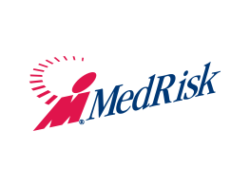White Paper
How Physical Therapy Breaks Down Psychosocial Barriers to Recovery
White Paper Summary
While the term biopsychosocial has been part of the workers’ comp lexicon for more than a decade, industry shifts in recent years have pushed it closer to the forefront. With all the changes wrought by the pandemic’s impact on businesses and on the workforce, that focus is now aligning with patient care in a unique way.
Biopsychosocial, put simply, refers to the union of the biological, psychological and social factors that can impact an individual’s health, including their ability to recover from an injury.
It’s become increasingly well understood that a broad range of factors within these three spheres can impact a workers’ recovery. A worker could be experiencing stress and worry over feeding her family or paying the bills. Or they might have mixed feelings about returning to work because of fear of reinjury or concerns about conflicts with their supervisor that were bubbling even before the injury. Maybe the worker suffers from a comorbid condition that hasn’t been treated for a variety of reasons.
Unlike bruises or lacerations, psychosocial setbacks tend to be invisible. And they’re likely to stay that way unless someone asks questions and makes observations that haven’t typically been a part of the intake process on an average claim.
Claims organizations are paying attention, and have been working to adapt, to build processes and tools that help identify these elusive red flags. The earlier that risks or obstacles are identified and addressed, the better the potential outcome for the worker, the employer and every stakeholder on the claim.
“The research is out there now that this makes a difference in recovery,” said Brian Peers, VP of Clinical Services & Provider Management, MedRisk.
“When these issues are identified early and managed early and resources are allocated to them, people are recovering faster and they’re more satisfied with their care. So getting that type of information in the hands of the individual providers and the individual adjusters, that makes a world of difference, but it takes time.”
Time, however, is often the enemy of positive outcomes. Sometimes it’s not until a claim has already begun to slip off the rails that the search for red flags even kicks in. Proactive employers are seeking out new tools and solutions to gain these strategic early insights.
But what about finding new ways to leverage the tools and resources we already have?
To learn more about MedRisk, please visit their website.





